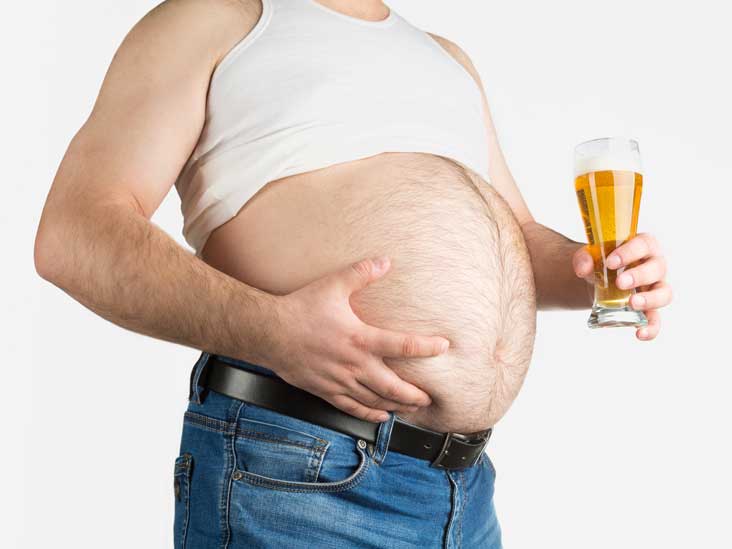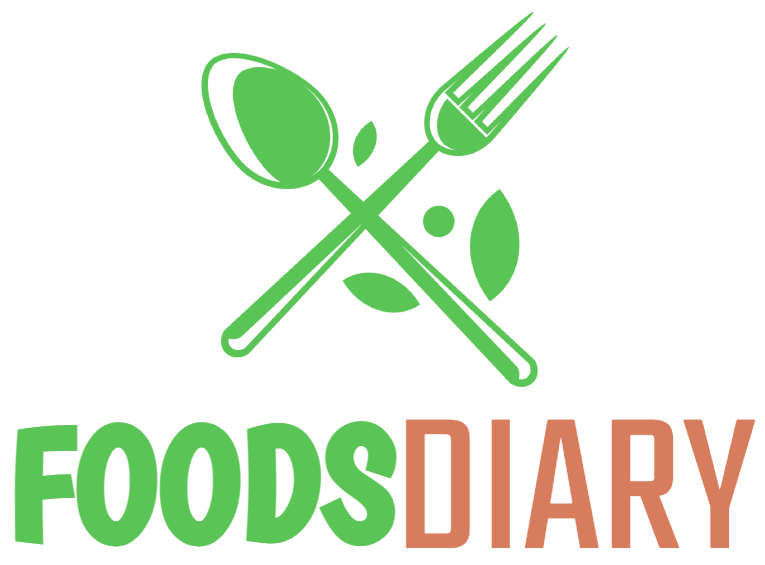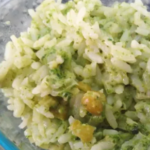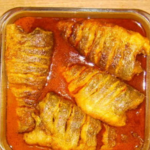Do you usually consume alcohol and feel more bloated? If you are wondering if alcohol makes the belly fat, swollen or if it is a myth, we will solve all your doubts and we will explain how not to gain weight by drinking alcohol. Thus, we anticipate that the key lies in the way of consuming alcoholic beverages, of combining them and, of course, of the physical constitution of each person.

Keep reading and find out with us if alcohol makes you fat or not and how to avoid gaining weight by drinking this type of drink.
Does alcohol make you fat or is it a myth?
Based on the theory that alcohol makes you fat, the almost general rule seems to dictate that the higher the level of alcohol, the higher the number of calories, however, things are not as easy as it seems at first glance. Why? Because apart from the fact that there are many types of slimming diets (low carbohydrates, low fat, low calories, low protein, etc.), you should also consider other aspects such as: the foods you eat when you drink alcoholic beverages, the way you consume alcohol, the combination of drinks with each other, the ingredients of the drinks, the peculiarities of your body, the characteristics of the drink, the degrees of alcohol they contain, among many other aspects. If you take these factors into account, you already win part of the battle to maintain a slim figure.
However, despite the fact that many alcoholic beverages have high degrees of alcohol and zero nutrients (the famous empty calories); you can also find other intoxicating beverages with some nutritional contributions and great benefits for the body. For this reason, many doctors support the controlled consumption of certain alcoholic beverages, but not without first warning about the damage caused by their excesses. The interesting thing is that drinks like wine can help you lose weight, consumed properly and without the calorie count itself being so important.
Due to all of the above, there is currently a great controversy about whether alcoholic beverages are fattening or not. This controversy focuses on discovering whether alcohol is fattening in itself (calorie count) or if it is due to how you consume it and the damage that this can cause to the body (reflected in obesity and other problems).
Theories that say that alcohol does not make you fat
In the book,, the British journalist compiles several arguments in favor of the “new” thesis that alcohol does not make you fat. This book collects many serious investigations, by several renowned scientists who contribute this new angle of the subject, which already during the 90s exposed in his investigations.
There, personalities make statements such as:
- The idea that all calories are the same and all foods are fattening is outdated, since it does not have solid scientific evidence.
- There is a bug in the system we use to count calories; that fault applies to most foods.
- Whether we store these fats as fat or burn them depends on whether we eat or drink carbohydrates with alcohol, which we do on a regular basis. To clarify Taube’s’ argument, we can say that alcohol increases the production of fat in the liver, but this does not imply that it makes the rest of the body fat. However, it can cause harmful effects on the organ if the intake of intoxicating beverages is exceeded and consequently it will affect the functions of the liver, causing a possible tendency to obesity. Finally, alcohol is not fattening in itself, what is fattening is the way of ingesting it; with this argument and the previous ones, counting calories would lose validity.
Finally, other studies in favor of this theory are documented. During experiments carried out in 2004 and 2008, respectively, alcohol was administered to two rodents on the same diet. The result? There was no change in their weight, which supports the thesis that alcohol does not influence weight. What do you think alcohol makes you fat or not? Do you stay with the most widespread thesis or with this “new” theory?
How not to get fat drinking alcohol?
Now that we know that alcohol makes you fat if consumed improperly, let’s see below the best recommendations to avoid gaining weight and know how to drink correctly:
- Do not drink on an empty stomach.
- Mix alcoholic beverages appropriately.
- Choose to combine alcohol with natural ingredients, maintaining balance.
- The physical form of each person influences the absorption and assimilation of alcohol.
- Be careful with nuts and other salty foods when drinking alcohol.
- Moderate consumption and your body will thank you.
In the following sections we will explain each point in detail.
On an empty stomach, alcohol makes you fatter
Whether they are drinks or alcoholic beverages for a diet, if you consume them on an empty stomach, the body absorbs them faster, since there is no other product to process. Also, if you do this regularly, over time you can damage your digestive system, causing ulcers or other diseases.
On the other hand, it should be noted that distilled beverages have more calories due to their high concentration of alcohol. For example, whiskey or vodka is more caloric than wine and beer. This, added to its consumption on an empty stomach, is a bomb in every way for the body.
To prevent alcohol from making you fat, combine it properly
Some alcoholic beverages have carbohydrates in different proportions. If you inappropriately combine these drinks with other foods, add inappropriate ingredients to cocktails, such as sugars, or consume excessively these types of drinks, you create a calorie bomb. Whether you store fat in the body or burn it depends on whether you eat or drink carbohydrates along with alcohol.
Likewise, avoid drinking alcohol combined with juices, soft drinks or sugar. Alcoholic beverages combined with soft drinks, juices, powdered drink mixes, among others, considerably increase their caloric intake to the body thanks to the significant amount of sugar that these ingredients have. Remember, if the juice is industrial, the amount of sugar is greater than if you use natural juices. Prefer natural products such as fruits, herbs or vegetables, so the drinks will be healthier and tastier. Remember that some fruits have high levels of sugars (simple carbohydrates), which is not beneficial for any diet if you combine them with alcohol. If you use drinks with sweeteners, find out the advantages and disadvantages of the product (for example, aspartame). When in doubt, always consult a nutritionist.
The size of people also influences the absorption of alcohol
People with greater stature suffer less from the immediate effects of excessive alcohol consumption, even if they ingest the same dose as someone of smaller stature. What causes this? That taller people consume more alcohol because they do not feel intoxicated, therefore they also consume more calories.
On the other hand, each organism assimilates alcohol differently. Each body is different, so it is important to consider certain variants when drinking alcoholic drinks: sex, age, body size (height and weight), health status, genetics, exceptional cases (variables), etc. All these factors directly affect the metabolism of alcohol in our body, which implies different reactions to drinking. For example, if you have fatty liver, you may metabolize alcohol more slowly and this will be reflected in your figure.
Alcohol intake inhibits weight loss
Why does this happen? Because the body burns alcohol before anything else. In other words, the liver is responsible for processing the alcohol ingested to burn it, but it cannot process the fats that the body needs to dispose of at the same time. In other words, you can’t do both activities at the same time, so if you eat high-calorie foods (fats or carbohydrates) along with alcoholic beverages that make you fat or you drink too much, you’ll gain weight. On the other hand, intoxicating drinks also affect the hormonal system, which increases appetite and makes weight control difficult.
Watch the food you eat while drinking alcohol
In this sense, eliminate salty nuts while you drink alcoholic beverages. Consuming highly seasoned food, salty nuts or snacks (chips, fried bananas, sticks, etc.), increases thirst because the body becomes dehydrated, both by alcohol and by food, which ultimately causes consume more alcohol. It is interesting to mention that this trick is very effective in bars, because by placing some salty dried fruit (usually peanuts); it causes customers to consume more alcoholic beverages.
Likewise, alcohol and desserts are the worst possible combination. Although there is a popular saying that says: “drunk does not eat sweet”, some drinkers bet on this duet. However, consuming alcohol and sweets at the same time is inadvisable for three reasons: first, what happens with salty foods is repeated, because it makes you thirstier, so you drink in excess; second, the combination of alcohol and simple and complex carbohydrates gives you a caloric bomb; Third, as your blood glucose levels rise, your (fictitious) energy increases and you become euphoric, so you drink more.
To learn how not to gain weight by drinking alcohol, avoid eating carbohydrates while drinking. Complex carbohydrates (bread, pasta, rice, chips, etc.) increase blood sugar levels. So when you drink alcoholic beverages, choose foods rich in protein and healthy fats. Foods such as ceviche’s, meat or chicken skewers, seeds, olives or smooth guacamole are excellent companions for drinks, whether they are alcoholic beverages for diet or not, because they are healthy fats. In the specific case of red wine (and other wines), this type of fat enhances the benefits of this drink.
Wine is better during and after a meal than just
Yes, except for other alcoholic beverages that make you fat, red wine is better during or after a meal, as it contributes to weight loss, since if you drink it you only assimilate it more. In addition, this drink during meals raises the levels of omega 3 fatty acids in the body, favorable for weight loss. Some data, not yet confirmed, also suggest that perhaps the schedule helps to enhance the benefits of wine, with dinner being the best time for a glass.
Above all, consume alcohol in moderation
As with all foods and drinks, the important thing is moderation. Excess alcohol is always harmful, since it can make you fat, malnourished or sick. Remember that most alcoholic beverages do not provide nutrients, although they do provide calories (empty calories); only a very small group provides you with some nutrients. What is this about? Because both in the fermentation process and in the distillation process (depending on the drink), nutrients are lost, partially or totally.



